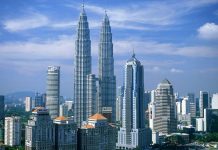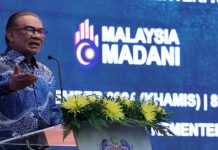Malaysia registered a labour productivity growth of 3.3% at RM75,538 from RM73,091 in 2014. Productivity in Malaysia was growing at its historical average rate of around 2% per year between 2010 and 2015 which have a potential to rise to 3.7% in the next five years (2016-2020), as targeted under the 11th Malaysia Plan.
Based on the productivity Report 2015/2016, the industry productivity growth has remained strong as evidenced in several key sectors such as manufacturing (7.1%), construction (5.5%) and services (3.3%).
The report said Malaysia approach to productivity will be targeted at industry players and individual enterprises with champions having been identified to effect role model changes and ensure buy-in across various stakeholders. The sole aim of these productivity champions will be to identify opportunities for boosting opportunity within their respective industries and to help industry players to take advantage of them.
The report further emphasized that the utmost urgency for us to unleash the potential of greater productivity in Malaysia towards reaching the global frontier. Among the strategies that we should focus are; championing productivity and competitiveness by nurturing a competent, innovative and skilled workforce, leveraging on research and innovation, as well as increasing market competitiveness; and strengthening the growth of entrepreneurs through skills enhancement and education towards greater operational excellence across the value chain.
Minister of International Trade and Industry Datuk Seri Mustapa Mohamed said, “MPC has highlighted that Malaysia’s future productivity growth is highly dependent on the capability of the workforce to innovate and apply advanced knowledge and technologies. The issue of human capital development through higher quality education is critical in achieving long-term sustainable growth and becoming a high income nation by 2020.
A holistic, nationwide productivity movement involving the government, industry and individuals will ensure our employees are equipped with advanced skills that allow innovation to drive exponential improvements and ultimately provide a better future for all.
The report addressed that a conducive business environment is essential to encourage higher public investment. Government will play pivotal role to facilitate regulatory environment that promotes greater productivity and competitiveness.
“Government is continuing its facilitating role in the Modernising Business Regulation Programme by promoting the adoption of Good Regulatory Practices at both federal and state levels to enhance productivity through better governance. Those regulations that contribute to improving the national outcomes will be retained, while redundant and outdated regulations will be eliminated. In 2015, our Regulatory Impact Analysis (RIA) initiatives generated compliance cost savings and other benefits of RM263.85 million. Similarly, the Reducing Unnecessary Regulatory Burdens initiative led to savings of RM1.39 billion,” Datuk Seri Mustapa said.
Also present at the event were the Chairman of MPC, Tan Sri Azman Hashim, and the Director-General of MPC, Datuk Razali Hussein.
























